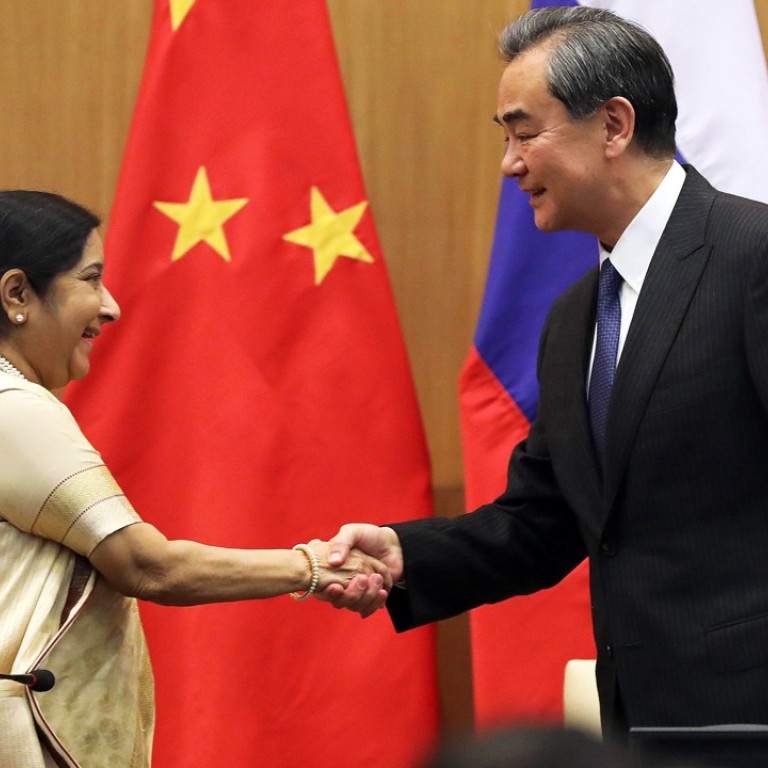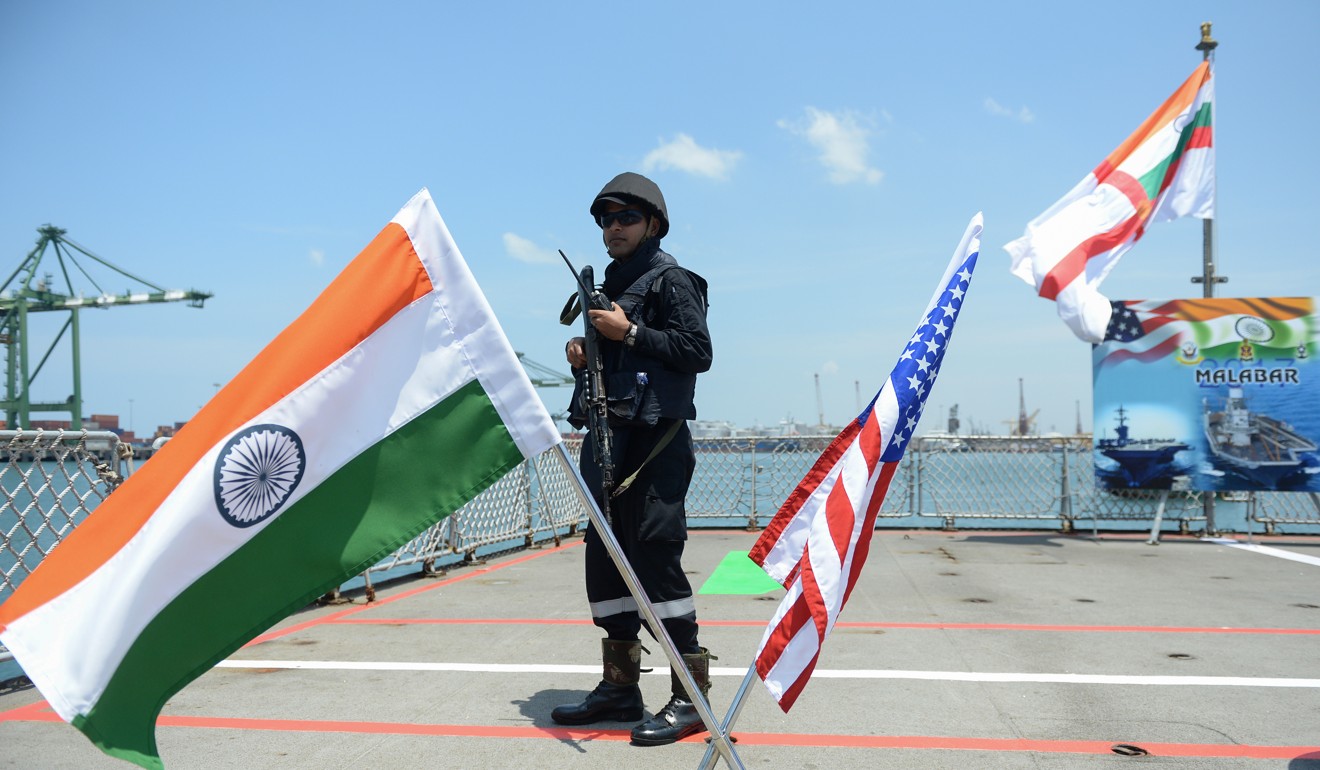Advertisement
Advertisement

India reconsiders China relations and looks to a future of mutual benefit
K.S. Venkatachalam says New Delhi is starting to realise that cooperation with Beijing, even as it secures its own defences, is a route to a better future for both countries
Chinese foreign minister Wang Yi, before the Russia-India-China meeting of foreign ministers last week, said that “friendship and good neighbourliness” between India and China matter more than “partial frictions” on the border.
If this sentiment is realised, future China-India relations can bring not only peace and prosperity to the region, but have a multiplier effect through increased trade and commerce.
In India, there is a growing realisation that economic growth is intertwined with prosperity in the region and that the countries should settle contentious issues through dialogue. A few developments this year have forced India to review its China policy. One, the Doklam stand-off, nearly brought the two countries to war. The others were China’s repeated attempts to block India’s membership in the Nuclear Suppliers Group and its refusal to support a United Nations-backed resolution to declare Jaish-e-Muhammad leader, Masood Azhar, a terrorist.
Can China, India rebuild trust as border tensions linger?
India’s calculus for joining the Indo-Pacific Quadrilateral grouping, also consisting of the United States, Australia and Japan, is that it feels such an alliance would offer it a strategic security architecture in the event of conflict with China. But the idea of an Indo-Pacific alliance is not workable if it aims only to contain China. Moreover, it would be too much to expect the US under Donald Trump to come to India’s or Japan’s aid in the event of such a conflict. His withdrawal from the Trans-Pacific Partnership and his decision to recognise Jerusalem as Israel’s capital have not generated confidence among countries in Asia or the Middle East.
The best way forward for India is to continually engage China to settle disputes and, at the same time, modernise defence systems to meet any eventuality. We have seen India’s tough stand over Doklam force to China to back off.

Ignore what you’ve read about China and the Singapore-India naval pact
China, which aspires to the mantle of global leadership, will think twice before attacking any country. Further, China and India are among the fastest-growing economies in the world, and may both be among the top three by 2050, though only through cooperation and a strong partnership between the two. Also, as China’s “Belt and Road Initiative” has become a dominant project, straddling both economics and geopolitics, India should seriously consider joining if it wants to be a serious rising power in Asia.
The overarching challenge for both India and China is to find ways to settle disputes in the spirit of cooperation and accommodation. In this context, it is hoped that Wang’s visit to India will set the tone for a meaningful solution to the contentious border disputes.
K.S. Venkatachalam is an independent columnist and political commentator
This article appeared in the South China Morning Post print edition as: India rethinks China relations

Post
